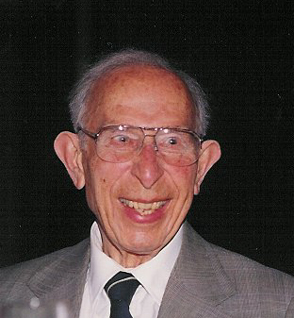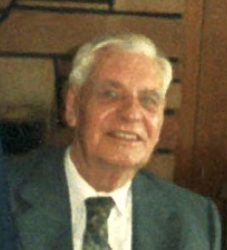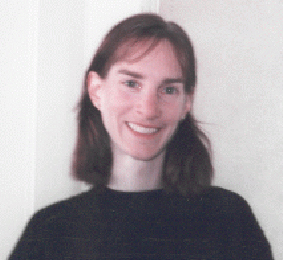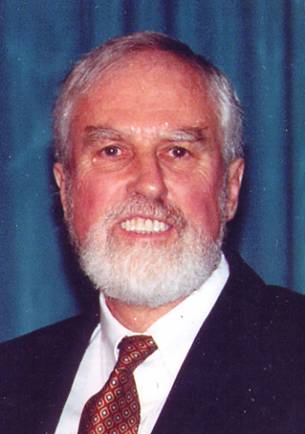 Rube Hornstein Medal in Operational Meteorology
Rube Hornstein Medal in Operational Meteorology
Nominations are to be received no later than 15 February by the Awards Coordinator at e-mail: awards-coord@cmos.ca or the Society postal address to be considered by the selection Committee.
- Nomination letters should include the current title, full address and phone number of the nominee.
- An up-to-date CV and a summary of the candidate's work must be included.
- The nomination should be accompanied by (at least one and at most four) additional letters of support indicating the extent of influence of the candidate's work.
- Nominees in previous years who have not received awards may be re-nominated. All criteria provided above apply to re-nominations.
- The Committee has a policy of automatically considering nominations (kept on file) submitted the preceding year , without the need for re-nomination documents. Nevertheless, nominators are strongly encouraged to re-affirm and/or update these nominations.
- Electronic format (e.g., pdf) is preferred; however, hard-copy material will be accepted.
- Receipt of submissions will not be acknowledged unless requested. Acknowledgement when requested will be by e-mail
The following are excerpts from his biography.
Rube Hornstein was raised on a farm in London, Ontario. He graduated as gold medallist in honours physics from the University of Western Ontario in 1934 and received his MA in physics in 1936. He obtained his MA degree in meteorology from the University of Toronto in 1938.
In 1938, he joined the meteorological branch of the federal Department of Transport and from 1938 to 1940 he was a forecaster at St. Hubert and Malton Airports. In March 1940 he was transferred to Halifax as officer-in-charge of the meteorological section of Eastern Air Command, administering meteorological services for all three branches of the Armed Forces from 1940 to 1946, with special emphasis on the RCAF Coastal Command and the naval convoy operations. His service was recognized by the granting of membership in the Order of the British Empire, by King George VI in 1946.
From 1946 to 1972 he was officer-in-charge of the Halifax Atlantic Weather Centre.
He began doing radio reports for the CBC in 1946 and hosted a popular show called "Ask the Weatherman". When the CBC launched a TV news program, Gazette, in 1954, Mr. Hornstein did the weather forecasts.
Among the many honours bestowed upon him were the Patterson medal for distinguished service to Canadian meteorology in 1962.
He was a Life Member of CMOS .
"He was just one of the last great gentlemen," said Don Tremaine, a longtime friend and television colleague. "They don't make those birds anymore."
| Top of Page |
 J.P. Tully Medal in Oceanography
J.P. Tully Medal in Oceanography
Nominations are to be received no later than 15 February by the Awards Coordinator at e-mail: awards-coord@cmos.ca or the Society postal address to be considered by the selection Committee.
- Nomination letters should include the current title, full address and phone number of the nominee.
- An up-to-date CV and a summary of the candidate's work must be included.
- The nomination should be accompanied by (at least one and at most four) additional letters of support indicating the extent of influence of the candidate's work.
- Nominees in previous years who have not received awards may be re-nominated. All criteria provided above apply to re-nominations.
- The Committee has a policy of automatically considering nominations (kept on file) submitted the preceding year , without the need for re-nomination documents. Nevertheless, nominators are strongly encouraged to re-affirm and/or update these nominations.
- Electronic format (e.g., pdf) is preferred; however, hard-copy material will be accepted.
- Receipt of submissions will not be acknowledged unless requested. Acknowledgement when requested will be by e-mail
The following are excerpts from his biography.
John (Jack) Patrick Tully, known as "The Father of West Coast Oceanography" in Canada, was born in Brandon, Manitoba on 29 November 1906 and was brought up in Winnipeg, Manitoba. he died in Nanaimo, BC 19 May 1987.
In 1931, he graduated from University of Manitoba with a B. Sc in biology and chemistry and was recruited as an assistant to Neal Carter, a young chemist and oceanographer working in the Pacific Biological Station in Nanaimo. He was hired to do chemical assays of the nutritional values of canned fish products but already in his first year he had become involved in oceanographic studies.
In 1932 he recruited five lighthouse keepers to begin daily observations of sea surface temperatures and surface meteorology; a program that expanded to twenty lighthouses and continued to early 2000's. When Dr. Carter left Nanaimo in 1933, Jack Tully became the oceanographer at the Biological Station; a position he retained until his retirement in 1969.
Tully and colleagues conducted the first offshore oceanographic survey on the Pacific margin of the Americas, occupying more than 100 stations between the entrance to the Strait of Juan de Fuca and Queen Charlotte Sound. This was a year before the first surveys of the California Current system began. These surveys gave the first descriptions of the complex current regime over the BC shelf and slope.
In 1939 he began a PhD program under Thomas G. Thompson at the University of Washington. His thesis research was on the oceanography of Alberni Inlet. His research was interrupted by the war, but he completed his PhD in 1948. His thesis, "Oceanography and Prediction of Pulp Mill Pollution in Alberni Inlet" , is considered by many as the first study in which oceanography was applied to a major pollution problem.
Tully returned to the Pacific Biological Station following the war and led the postwar growth in oceanography in western Canada.
In the 1950s, Tully saw the establishment of Ocean Weather Station Papa as an opportunity to extend his array of time series observations to an offshore location and through the water column. The OWS P and line P observations are among the longest set of time series available.
During his career, John Tully received a number of honours including the Coronation Medal of 1953, the Albert Ier de Monaco et la Mer in 1967, the Manley Bendall Prize in 1967 and the Queen's Silver Jubilee Medal. He was a fellow of the Royal Society of Canada.
in 1984, the Department of Fisheries and Oceans named their new oceanographic / hydrographic research vessel, CSS John P. Tully , in his honour.
| Top of Page |
 Tertia M.C. Hughes Graduate Student Prizes
Tertia M.C. Hughes Graduate Student PrizesThe awards are prizes of $500. for each recipient. There are up to two prizes per year.
[Note: this is not a scholarship but rather a recognition for previous work.]

The Tertia M.C. Hughes Memorial Graduate Student Prize was first awarded in 2000.
In 2008, the two awards were merged.
Nominations are to be received no later than 15 February by the Awards Coordinator at e-mail: awards-coord@cmos.ca or the Society postal address to be considered by the selection Committee.
- Nomination letters should include the current title, full address and phone number of the nominee.
- An up-to-date CV and a summary of the candidate's work must be included.
- The nomination should be accompanied by (at least one and at most four) additional letters of support indicating the extent of influence of the candidate's work.
- Nominees in previous years who have not received awards may be re-nominated. All criteria provided above apply to re-nominations.
- The Committee has a policy of automatically considering nominations (kept on file) submitted the preceding year , without the need for re-nomination documents. Nevertheless, nominators are strongly encouraged to re-affirm and/or update these nominations.
- Electronic format (e.g., pdf) is preferred; however, hard-copy material will be accepted.
- Receipt of submissions will not be acknowledged unless requested. Acknowledgement when requested will be by e-mail
The following are extracts from her biography.
Atmospheric and ocean scientist, extraordinary graduate student. In 1989, Tertia was awarded an Honours BSc in Physics and Mathematics at the University of Ottawa, with great distinction. She also won the science faculty's silver medal for academic excellence, given to the student with the top marks in all areas of science.
In 1987 and 1988, she worked with Dr. Michel Leclerc at the Institut National de la Recherche Scientifique-Eau (INRS) of Université du Québec. Tertia arrived at McGill University in 1989 holding an NSERC (Natural Sciences and Engineering Research Council) postgraduate fellowship, after refusing a McGill Women's Centennial Fellowship because she felt that gender discrimination should never be a factor in academic achievement. She studied numerical methods in atmospheric and oceanic sciences.
In 1992, Tertia moved to the University of Victoria's School of Earth and Ocean Sciences to continue her PhD studies. With support from major national fellowships, Tertia examined ocean circulation and atmosphere-ocean interactions, completing her thesis in 1995.
In January 1996, Tertia moved to Princeton University to work with Prof. Jorge Sarmiento. She immersed herself in her new job with the same enthusiasm, energy and dedication that she had shown in her graduate and undergraduate days.
Upon hearing the news of Tertia's death in 1998, the response from scientists around the world was overwhelming. Because she died so young, her further successes were lost and will be missed by the world scientific community. The Canadian Meteorological and Oceanographic Society (CMOS) has named its Graduate Student Prize "The Tertia MC Hughes Memorial Graduate Student Prize" in her honour.
The Prize includes a financial award from contributions received from friends and CMOS members. The first award was made at the 2000 CMOS congress in Victoria, B.C.
| Top of Page |
 Roger Daley Post-Doctoral Publication Award
Roger Daley Post-Doctoral Publication AwardThe award is a prize of $2,000.

Nominations are to be received no later than 15 February by the Awards Coordinator at e-mail: awards-coord@cmos.ca or the Society postal address to be considered by the selection Committee.
- Nomination letters should include the current title, full address and phone number of the nominee.
- An up-to-date CV and a summary of the candidate's work must be included.
- The nomination should be accompanied by (at least one and at most four) additional letters of support indicating the extent of influence of the candidate's work.
- Nominees in previous years who have not received awards may be re-nominated. All criteria provided above apply to re-nominations.
- The Committee has a policy of automatically considering nominations (kept on file) submitted the preceding year , without the need for re-nomination documents. Nevertheless, nominators are strongly encouraged to re-affirm and/or update these nominations.
- Electronic format (e.g., pdf) is preferred; however, hard-copy material will be accepted.
- Receipt of submissions will not be acknowledged unless requested. Acknowledgement when requested will be by e-mail
The following are excerpts from his biography.
Roger Willis Daley, UCAR Distinguished Scientific Visitor at the Naval Research Lab in Monterey, died at his home in Carmel Valley, California, August 29, 2001.
He studied at the University of British Columbia graduating with a B. S. in mathematics and physics in 1964. He completed a M. S. in Meteorology at McGill University in 1966
After two years as a professional weather forecaster in Goose Bay, Labrador and Montreal, Quebec, he began PhD studies at McGill, graduating in 1971. After two years of post-doctoral studies at the Institute for Theoretical Meteorology in Copenhagen he returned to Canada to a research scientist position with the Meteorological Service of Canada (MSC) in Montréal.
He was the team leader for the world's first operational spectral forecast model, which was implemented in 1976. The spectral approach is now used in most operational global NWP centres and forms the dynamical basis for most climate models presently in use.
He also was a co-developer of the variable resolution finite element model that was used for regional forecasting applications in Canada for many years.
He was an integral part of the development of the research agenda for the Canadian Climate Program that was ultimately a major initiative of Canada's Green Plan. This program supported the development of a vigorous climate research capability in Canada that thrives to this day.
By the time he left the MSC he was firmly established as a world leader in data assimilation.
He was Editor for the CMOS journal Atmosphere-Ocean from 1989-1992. Daley received many honours during his career.
From the Canadian Meteorological and Oceanographic Society (CMOS) he received the Prize in Applied Meteorology in 1975 and the President's Prize in 1982. He was elected a Fellow of the Royal Society of Canada in 1993 and a Fellow of the American Meteorological Society (AMS) in 1997. In January 2001, he was awarded the prestigious Jules Charney Medal of the AMS for a lifetime of outstanding scientific achievement.
| Top of Page |
Page revised: 1 July, 2021
